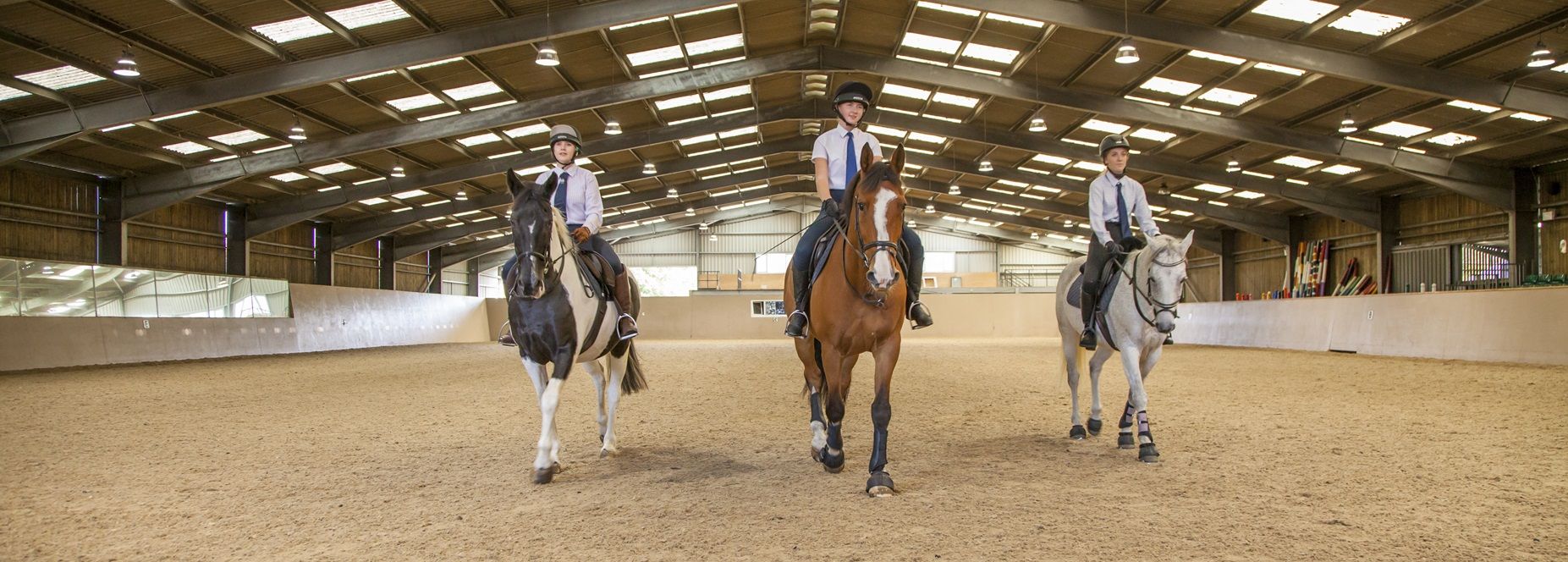Patrick Delaney, who lectures in Equine at Hadlow College, tell us about the importance of vocational education in the land-based sector - how it enhances employability and supports economic growth, the pivotal role it plays in promoting sustainable practices and much more...
It’s 7am. The horses are turned out, the cows have been fed, and the chickens are…well I don’t know where the chickens are, but the cat is staying right next to me, and she’s frightened of the chickens, so they must be nearby. Meanwhile, I’m sat with a coffee thinking yet again about vocational education...
This is a common recurring thought now. Who’s going to feed these animals in the future? Where is our (and their) food going to come from? Who is going to look after the land? The simple fact is, the next generation need to learn about the land, and they need somewhere to learn it.
Vocational education in the land-based sector is not just an educational pathway; it’s a cornerstone of our future sustainability and economic resilience, and I believe that the importance of vocational education in agriculture, horticulture, forestry, and animal care cannot be overstated. Moreover, it’s becoming increasingly obvious that it’s essential for addressing some of the pressing challenges of our time, from food security to environmental stewardship.
So where do land-based colleges fit in?
At the moment, the land-based sector faces a critical skills gap. Traditional academic routes often overlook the practical skills needed for modern agriculture and related fields. Vocational education fills this void by providing hands-on training tailored to the specific needs of the industry. This ensures that graduates are not only knowledgeable but also capable of applying their skills in real-world settings. For instance, programs in precision agriculture teach students to use technology to enhance crop yields and sustainability, directly addressing the skills gap.
Another factor is how much vocational education significantly enhances employability. Graduates of these programs are job-ready, equipped with the practical skills and knowledge that employers in the land-based sector demand. Whether it’s a student trained in advanced horticulture techniques, one skilled in animal husbandry or equine training and management, vocational education ensures that individuals can seamlessly transition into the workforce. This practical approach to learning is crucial for maintaining a robust and capable workforce in the land-based sector.
We’ve all heard of and are aware of the importance of sustainability. Sustainability is at the heart of the land-based sector. Vocational education plays a pivotal role in promoting sustainable practices by teaching students how to implement environmentally friendly techniques. Programs focused on sustainable agriculture, for example, cover essential topics such as soil health, water conservation, and integrated pest management. By instilling these values and skills in students, vocational education helps ensure that the land-based sector can meet the demands of today without compromising the needs of future generations.
Meanwhile, the economic impact of the land-based sector is profound. The farming industry alone is worth £7.9 billion (2022 Gov. figures), with the British Equestrian Federation suggesting the Equine Sector is worth £5billion (2023 figures), without even accounting for the social factors. Vocational education supports this by creating a skilled workforce that can drive productivity and innovation. By reducing unemployment and increasing productivity, vocational education stimulates economic growth at both local and national levels. This is particularly important in rural areas such as ours in Kent, where the land-based sector often serves as the backbone of the economy.
One of the key advantages of vocational education is its flexibility and accessibility. These programs are typically shorter and more affordable than traditional academic degrees, making them accessible to a broader range of individuals. This includes those who may not have the resources or desire to pursue a four-year degree, as well as those looking to change careers or re-enter the workforce. This flexibility ensures that vocational education can meet the diverse needs of learners and the industry alike.
Historically, vocational education has also been stigmatised as a less prestigious alternative to academic pathways. However, this perception is changing, and rightly so. As more people recognize the value of skilled trades and technical professions, vocational education is gaining the respect it deserves. It also supports lifelong learning by providing opportunities for individuals to continue their education and develop new skills throughout their careers. This adaptability is crucial in a rapidly changing job market.
Let’s be clear, vocational education in the land-based sector is indispensable. It addresses the skills gap, enhances employability, promotes sustainable practices, supports economic growth, and offers flexibility and accessibility. By reducing stigma and fostering lifelong learning, vocational education ensures that the land-based sector remains robust and capable of meeting future challenges.
As we navigate the complexities of the modern world, the importance of vocational education in this sector cannot be overstated. It is a vital investment in our collective future.
 Patrick Delaney (pictured left) lectures in Equine at Hadlow College, Kent's only rural and land-based college.
Patrick Delaney (pictured left) lectures in Equine at Hadlow College, Kent's only rural and land-based college.
The majority of courses offered at the College are vocational based and prepare students to be ready for employment and skilled within their craft. Vocational pathways offered including Further Education, Higher Education and Apprenticeships.
To find out more visit the Course Explorer page of the website. Alternatively come along to the next Open Morning on Saturday 9 November.

